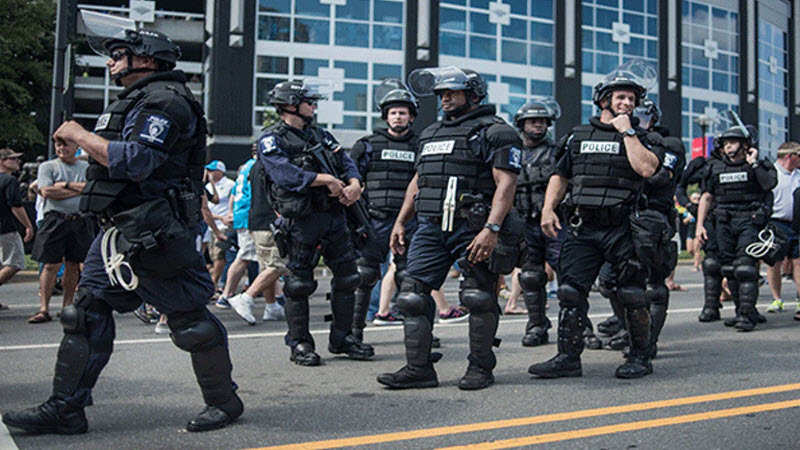

By Kalani E. Gaines
BOSTON – Although there’s been a whirlwind of protests, and resulting police reform legislation this past year, some states are still awaiting a call to action—Massachusetts is one of them.
A police reform bill is awaiting action—to be signed, vetoed, or amended, but if signed by Gov. Charlie Baker it would include a ban on the use of chokeholds and no-knock warrants and require licensing of law enforcement officers.
The wait has become nerve-wracking for those in favor and opposition as they wait for a decision.
Congressperson Ayanna Pressley and State Representative Liz Miranda are hoping Baker will soon sign the bill with no amendments made to its provisions.
Police unions have been shown to be largely in opposition to the measure and the changes it would make—they claim officers’ lives would be put in jeopardy with the new law in place.
“Critics suggest that these common-sense limits might put officers’ lives in jeopardy,” Pressley and Miranda said in a statement supported by District Attorney Rachael Rollins and NAACP Boston Branch President Tanisha M. Sullivan.
“We would argue that the SWAT-like tactics of no-knock raids pose grave dangers to all involved — especially unarmed and innocent families behind the doors where those warrants are executed,” they  added.
added.
In addition to the ban on chokeholds and the ban on no-knock warrants, there are several other provisions that can contribute to Massachusetts’ commitment to address police violence and racial injustice in the criminal justice system, such as facial recognition regulation.
Under the facial recognition regulation, law enforcement will only have access to a facial recognition search if they have a warrant for a violent felony or a suspect is an imminent danger to others.
“No public agencies could use or acquire any software that captures biometric data, including facial recognition, except the RMV,” said Steve Brown and Ally Jarmanning in their article, “Here’s What’s In The Police Reform Law Proposed For Massachusetts.”
Brown and Jarmanning argued, “Law enforcement could get a warrant to have the RMV run a facial recognition search, but only with a warrant for violent felonies.”
A commission with the purpose of making law enforcement more standardized by overseeing police officer certifications is a part of the bill as well.
The commission would be responsible for investigating misconduct and certifying officers as well as renewing their certifications, much as the state licenses barbers, doctors, nurses, and contractors. A public database with these records would also be included.
As a means to reduce the qualified immunity of police officers, another commission would also be proposed in order to study law enforcement liability and the controversy it sparks on both legal and political levels.
After the coverage of media outlets and the public’s outcries following the murders of Breonna Taylor and George Floyd earlier this year, states have been pressured into addressing racial injustice on a larger scale through police reform.
The city of Louisville banned the use of no-knock warrants after Taylor’s death and the US House of Representatives passed the George Floyd Justice in Policing Act after Floyd’s death.
Gov. Baker has said that he is still reviewing the bill. The action he takes will set an example for the next state yet to respond to the injustices in their criminal justice system.
 Kalani Gaines is from Stockton, CA, and she is currently majoring in Sociology at CSU Sacramento as a third-year student.
Kalani Gaines is from Stockton, CA, and she is currently majoring in Sociology at CSU Sacramento as a third-year student.
To sign up for our new newsletter – Everyday Injustice – https://tinyurl.com/yyultcf9
Support our work – to become a sustaining at $5 – $10- $25 per month hit the link: